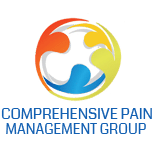Your First Appointment | What you can expect
Your first office visit is a comprehensive pain evaluation based on your history and a thorough physical examination.
To begin, we need to know as much about your medical history as possible. Before we meet, we ask you to complete a comprehensive medical and surgical history questionnaire. It is important for you to furnish your pertinent medical records, such as: MRI, CT scan, x-rays, procedures notes, etc. You are welcome to do this in the comfort of your home.
Create Treatment Plan | Set Goals
Next, your pain specialist and pain management nurse work with you to determine the best treatment plan based on your diagnosis. As a team, we will set realistic, achievable goals.
Your participation is very important for maximum success. This includes understanding your diagnosis, the recommended treatment, and setting and working toward your pain management goals. A critical part of this process for you is learning what brought about your pain, how to make it better and, if possible, how to prevent it from happening again. Your participation is essential!
At the completion of your first visit, you will understand the details of your treatment plan including the rationale for recommended medications and therapies.
Follow-up Treatment Plan | Charting Your Progress
Finally, we will determine a follow-up plan to make sure you are progressing as expected based on your diagnosis and treatment plan. Your feedback helps us fine-tune your treatment course to provide the best possible outcome.
Diagnostic Testing | Assisting In Your Treatment Plan
If needed, we may recommend further diagnostic tests such as:
-
- Electromyelogram (EMG)/Nerve Conduction Study, which enables us to diagnose muscle and nerve disorders, and assist in guiding treatment options.
- Computerized Tomography (CT) or Magnetic Resonance Imaging (MRI) Scan, which provides multi-layered images of soft tissue that help identify injuries to muscle, nerves, tendons and cartilage.
- Blood Tests which help identify a broad range of systemic problems.
- Specialized Ulrasounds to help to identify the area of pain.
Treatment Referral Options
Pain management is often a team effort. We pride ourselves in working with other specialists and allied health professionals to maximize your potential outcome. We may offer referral options to improve your function such as:
- Physical and Aquatic Therapy Treatment – to help reduce pain and increase strength and flexibility to make it easier to get through your day.
- Home Exercise Program – so you can take control of your well-being, and to help prevent future injuries.
- Coping Skills – When needed,we will refer you to a licensed clinical health psychologist can help you learn coping skills and attitudes necessary to deal with pain. When under constant pain, some can understandably become irritable and fatigued. As part of our total approach to pain management, we help you take more control over your life and start feeling better emotionally.
- Nutrition Counseling – for weight management, which can have a significant impact on pain control.
- Surgical Consultation – If needed, expert surgical teams are available, such as neurosurgeons and fellowship-trained orthopedic surgeons.
- Implantable Therapies – Similar to the concept of a pacemaker, an implantable spinal cord stimulator provides pain relief by blocking pain messages from nerves to prevent the signals from reaching the brain.
